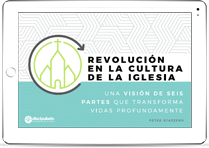Second-Hand Spirituality
The vast majority of people in our churches have a second-hand spirituality, i.e. they live off the spirituality of others. Because people attend our weekend worship services, participate in our programs, give money and serve, we assume they are in a vital personal relationship of loving union with Jesus. We assume wrong. They are not. Ask the people you serve about their time with Jesus each day: “How often do you meet with Him around Scripture and prayer? What do you do, and for how long? How might silence, solitude, Sabbath, spiritual companionship, and study fit into your life?” Ask for specifics. You are in for a shock. The world has changed dramatically. We have underestimated the magnitude of information overload, the moral decline of Western culture, and the impact of the Internet/social media in altering our brain circuits. “Dozens of studies by neurobiologists point to the same conclusion: when we go online, we. Read more.






